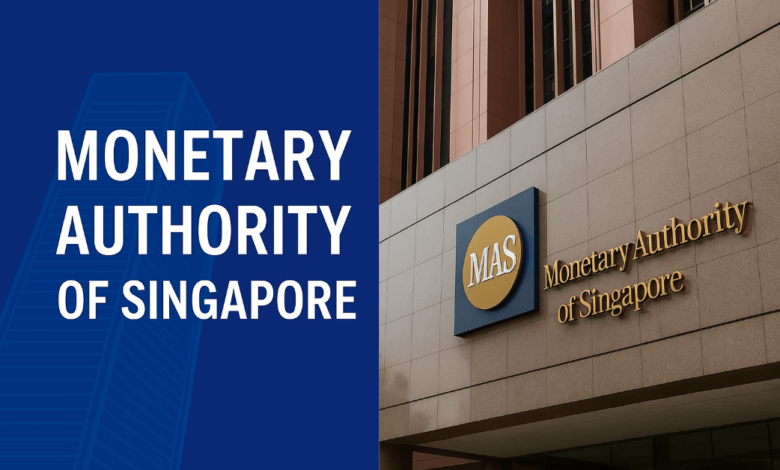The Role of MAS in Financial Oversight and Digital Transformation

Monetary Authority of Singapore or MAS, as it is abbreviated, is the central bank and financial regulator of the country. It was established to have a centralized monetary policy, financial supervision and payment systems under a single organization. Since its inception MAS has become one of the most effective, transparent and innovative regulators of the world. Its influence is not limited to Singapore, but it provides its contribution to the financial standards and the digital evolution across Asia and globally. The company ensures that it is economically stable by its policies that support growth and technological advancement.
Development and Emergence of MAS
The Monetary Authority of Singapore was formally formed in 1971 after Singapore realized that there was need to integrate various monetary and regulatory functions. Before its formation, various government organizations were in charge of various aspects of finance and thus duplication and inefficiency was experienced. The government tried to streamline their decision-making process by bringing together these functions into one organ and improve the government. With the beginning of economic growth of the country, the need to have a single body to control currency policy, financial supervision and regulation of the banking system became more important.
Banks: Central Banking Role and Monetary Policy
Price stability and protection of the purchasing power of the Singapore dollar is one of the key functions that MAS has been delegated with. The monetary policy of MAS is exchange rate-oriented as opposed to most central banks, which rely on the interest rates. This is used in the control of imported inflation and to enhance trade competitiveness as the economy of Singapore is very dependent on the international trade. The authority keeps an eye on the economic trends and implements changes in the policy band of Singapore dollar to ensure that it remains in a manageable range. This has been used to bring about economic resilience even when there is international financial instability.
Financial Institutions Regulation
MAS controls banks, insurance companies, capital market intermediaries, remittance service providers and other financial service providers that exist in the country. The supervisory policy is geared towards the risks, capital adequacy and consumer protection. The regulatory requirements are set to be hard but enabling and call on the financial institutions to act responsibly besides competing effectively. MAS also partners with other foreign ones so as to align with the international standards including the Basel Committee on Banking Supervision. This strengthens the confidence of the investors and customers to regard Singapore as a safe investment hub.
Compliance and Anti-Money Laundering
Singapore maintains the principles of anti-money laundering and counter-terrorist financing, and MAS becomes the centre of enforcing these measures. The regulator has mandated licensed institutions to conduct effective customer due diligence, oversee transactions and report suspicious transactions. All these have taken a new relevance in the digital age of finance and international payments. With its focus on the surveillance, transparency and compliance with AML, MAS will help to reduce the misuse of financial systems and protect the integrity of its economy. Close cooperation with the police and the world organizations aids in achieving this goal.
Funding of Innovation and Fintech
The progressive policy that MAS has with regard to financial innovation is universally appreciated. The regulator has introduced regulatory sandboxes that allow firms to test new financial products and services in a regulatory environment that is safe. This encourages experimentation but does not sacrifice on safety. MAS also encourages cooperation between technology companies and financial organizations and organizes events dedicated to innovations in digital payments, blockchain and artificial intelligence. Its receptiveness to change has helped Singapore to make it a fintech startup and an innovative financial solutions global hub.
Digital Banking and Contemporary
In recent years, MAS has issued digital banking licenses to bring even more competition and more accessibility to underserved communities. Digital banks are operated on modern infrastructure and customer-friendly platforms and platforms that simplify finance. Licensing regime ensures that the new entrants possess adequate capital, risk management controls and consumer protection. The digital banking of MAS is a component of a broader program to bring about inclusiveness, better customer experience, and future-proof financial intermediation. It is congruent with long-term economic competitiveness.
Financial Infrastructure and Payment Systems
Another area of regulation is the payment system and infrastructure development, which is regulated by the regulator. It should be noted that in making the transactions secure, effective, and cross platform interoperable. Programs such as online payment systems and digital money transfer allow people and companies to easily make local and international payments. MAS partners with banks and fintech firms to reduce the cost of transactions and fraud and enhance reliability. As digital commerce continues to grow, regulation of the payment systems is still on the agenda.
Green Initiatives, Green Finance and Sustainability
In recent years, MAS has turned towards being more committed to sustainable finance. It calls on the banks and investors to incorporate the environment, social and governance into investment choices. The authority encourages green bonds, climate risk management and sustainable investment principles. By advancing responsible finance, MAS can put the financial sector in line with the international agenda to address climate change. The financial institutions and international regulators are also supportive in ensuring that the motivation behind such initiatives is vigorous and aids in the push toward leading green financial development in Singapore.
Foreign Policy and Interaction
MAS cooperates with foreign institutions to affect the international financial standards and enhance cross-border cooperation. It participates in multilateral negotiations and makes bilateral agreements with other regulators. This facilitates close ties of the Singapore market to its neighboring regions and major financial centres. In the decision-making of digital assets, cybersecurity and financial innovation, the competence of the authority is also frequently sought. This boosts the status of Singapore as a financial system constituent.
Conclusion
The Monetary Authority of Singapore is a total institution that is a combination of the monetary policy, financial regulation as well as innovative outlook. Its central banking, supervision and digital innovation holistic strategy has made it possible to have a stable and trusted economy. Aspiring the adoption of fintech, the strengthening of anti-money laundering rules or the further development of innovations, MAS stays possible to lead the way with its strategic vision and cross-border collaboration. It is resilient, sustainable and innovative and situates Singapore to succeed in a more sophisticated financial environment in the long term.




